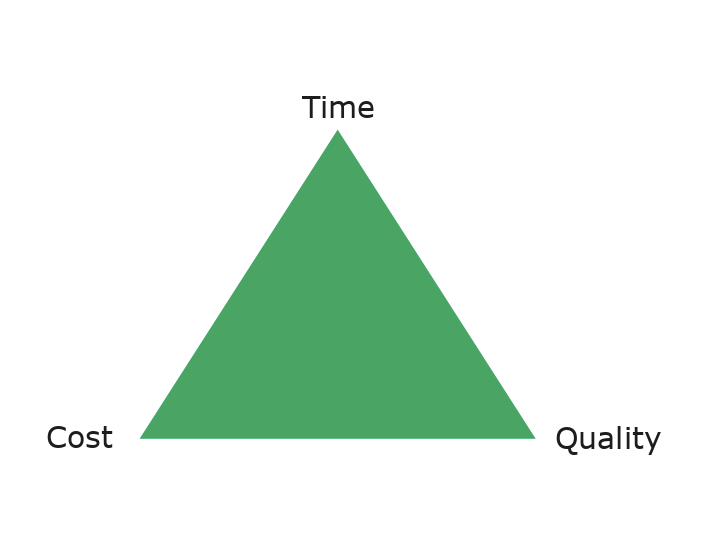Keep up with the latest hiring trends!
During the London 2012 Olympics Usain Bolt set a new event record. Streaking by the competition in a staggering 9.63 seconds, Bolt solidified his position as the fastest man on the planet. It would make sense then, during the 4 x 100m relay, with three teammates who are all statistically slower than Usain, that their overall time would reflect this, right? Some quick math would suggest around 39 seconds…
What would you say if I told you they actually clocked in at 36.84 seconds? In an incredible display of teamwork, the Jamaican’s median times were all faster than Usain Bolt. The secret behind this – alignment. It wasn’t about the individual speeds; it was their coordination while in motion and ability to be totally in-sync during the crucial baton passes that saw them clinch gold in such spectacular fashion.

But how does this relate to hiring managers and recruiters?
I’ve been in the recruitment industry for over 20 years now. One of the most common gripes I’ve witnessed is the strained relationship between hiring managers and recruiters. It often does feel like both are from different planets! But, at its core, I believe hiring is like a sport and one that requires the same level of cooperation and alignment that the Jamaican relay team displayed during the 2012 games. It’s the only way to achieve a successful culture of hiring.
Recruiters and hiring managers both play different, but equally important, roles in the process. It’s a recruiter’s job to understand the candidate market well and bring insights on best practices for things like advertising and interviewing. A hiring manager, however, is armed with the priorities of the organization. They can give detail on the required skills, training and what has worked well in the past. When the two come together on the same page, forming a tight, coordinated team, then they can absolutely nail hiring.
How do we calibrate for this?
It starts with the alignment meeting. You may know it as the “intake meeting”, but I agree with my friend John Vlastelica’s more egalitarian reassessment. This is a critical step in forming an alliance and, according to John’s integral Talent Advisor content on the SocialTalent platform, there are four core parts that should make up this meeting.
1.) Priorities
Here is where you’ll establish what is most important for the hiring manager using a tool John created called the Trade-Off Triangle. Each point marks a particular key attribute and we ask hiring managers to pick the two that are most vital. Three isn’t always realistic, so finding out the trade-off gives a recruiter very clear insight into how a requisition needs to be filled.

2.) Intelligence
Supply information to the hiring manager about the candidate market. Is there a high demand for these particular roles? Who are the target companies? How have we historically hired for this? What are the salary insights? Bring this kind of knowledge to the table so the hiring manager can become aware of what’s out there.
3.) Process
Sort out the nitty gritty then in terms of the process. Agree on the number of interviews that should be scheduled. Find out if there are other stakeholders that need to be involved. Get guaranteed time from the hiring manager. Detail what the decision process looks like. Are there a minimum or maximum number of candidates? Align on these key decisions to allow for smoother sailing.
4.) Roles
Lastly, agree on what a good candidate looks like. Offer real-time insights from a live LinkedIn or database search, for example, to test the waters and get a feel for what the hiring manager wants. Focus on the outcomes here and you will be well on the way to alignment.
How do you measure success?
The cost of a bad hire for a company is enormous, pilfering upwards of €20,000 per person. It’s a steadfast statistic in the world of recruitment. And if you take into account first year attrition rates and number of hires, the sum becomes astronomical. Say you make 2000 hires in one year and you lose 10%, based on these figures that’s a staggering loss of $4 million dollars…
But, looking at certain metrics can show the positive effect that alignment can have. Here are a few examples:
- Time to hire becomes more efficient.
- The cost of hiring reduces.
- Quality increases.
- First year attrition rates drop.
- Hiring manager and candidate feedback improves.
When hiring managers and recruiters partner up for success, the relationship flourishes. You will begin to see thinner funnels, minimal requisition cancellations, diversity in all aspects of the process and increased velocity. And, perhaps most important of all, candidate experience improves. The goal is always to achieve all-round hiring excellence. And it is possible! So maybe recruiters and hiring managers aren’t so different after all…
Watch the full “Recruiters are from Venus. Hiring Managers are from Mars” webinar here.
Want to hear more insights from Johnny? Subscribe to his fortnightly newsletter. SocialTalent is passionate about helping organizations achieve hiring excellence. Get in-touch with us today.
Related Articles
Find out how the likes of IBM, IKEA and Siemens
drive hiring excellence with SocialTalent
drive hiring excellence with SocialTalent

